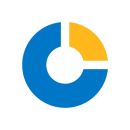Healthcare data science is an exciting and promising field in medical care and treatment. Given the abundance of data from electronic health records, genomics, medical images and wearable monitoring devices, it’s increasingly possible to do predictive modeling to anticipate disease outbreaks and patient readmissions. Healthcare data scientists are advancing personalized medicine and drug discovery, increasing efficiencies in hospital operations and expanding the benefits of telemedicine.
A subset of data science, generalists in this field can acquire the skills necessary to become healthcare data scientists. To do so requires technical learning, such as medicine terminology, regulatory issues affecting patient privacy and data storage, access and sharing.
The field also requires interacting with and influencing traditional healthcare providers to accept the introduction of healthcare data science. According to the Harvard School of Public Health’s Gopal Kotecha, MD, MS, who co-directs an Applied Artificial Intelligence for Health Care course, “If you build data science solutions that directly improve the workflows of key stakeholders and educate them along the way, people will be invested to participate. By focusing on implementation and buy-in early, data science teams can save time and money, so everyone wins.”
Built In Austin spoke with a data science expert at ClosedLoop to learn more about the opportunities in healthcare data science, including how it enables clinicians to spend more time with patients in finding optimal health outcomes.
ClosedLoop gives healthcare providers accurate, explainable and actionable predictions of individual health risks.
What are some of the unique challenges to working in data science in healthtech, and what skills are important to have for a data scientist if they are considering a career in healthtech?
Healthcare data science is a challenging field because the domain (healthcare) is as deep a technical and nuanced field as data science itself. If you are a seasoned data scientist coming into healthcare, you'll have a large body of knowledge to immerse yourself in to have the needed background to make effective design decisions.
The best way to overcome this challenge is to partner with healthcare subject matter experts. Your clinical partners will be great sources of detail that are essential in building effective models. This means that strong listening and communication skills are essential. When listening to stakeholders it is frequently the case that the first theory of how a problem should be framed is typically imprecise. Following up with many "why" questions is important to properly articulate problems as well as understand how to appropriately evaluate the effectiveness of your solutions.
What are some of the most rewarding aspects of working in data science for a healthtech company? How does your work impact the end user?
Healthcare data science is unique within the field, as you have the ability to tremendously improve the lives of patients. Most data science roles outside of healthcare carry the promise of big organizational impact, whether it be through adtech, operations, etc. All of those things are challenging, interesting and important, but few of these pursuits can claim the same societal good as improved health.
Most data science roles carry the promise of big organizational impact. All of those things are challenging, interesting and important, but few of these pursuits can claim the same societal good as improved health.”
Adding to this benefit is the fact that oftentimes health algorithms identify patients who are falling through the cracks of the healthcare system, which has strong correlations to race and socioeconomic status. Reducing healthcare inequality is a real promise of healthcare data science and the single aspect of my job I find to be the most rewarding.
What was something that surprised you about working in data science in healthtech?
For me, the biggest surprise was the enthusiasm we saw from the clinical staff for these models. Nurses, doctors and other medical professionals all know that our healthcare system is deeply flawed and it's the patients who pay the price. There is a lot of willingness to try new things to improve what's happening within the system to get those medical professionals off mundane tasks and back to what made them want to be in the industry in the first place — helping people live happy, healthy lives.







